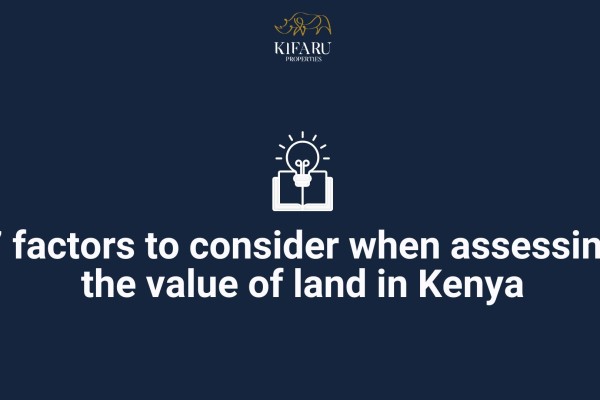- Aug 28, 2024
- Kifaru Meadows
- 209

1. Legal Due Diligence
One of the primary roles of a lawyer in land transactions is to conduct legal due diligence. This process involves verifying the legitimacy of the land in question and ensuring that it is free from any encumbrances, disputes, or legal issues. The lawyer examines the land’s title deed, confirming its authenticity and ensuring that the seller has the legal right to sell the property. This step is crucial to prevent the buyer from falling victim to fraud, such as purchasing land that is already owned by another party or encumbered by legal claims.
Lawyers also investigate the land’s history, including any past transactions and ownership details, to identify potential red flags. They check for existing mortgages, charges, or caveats on the land that might affect the buyer’s ability to obtain clear ownership. Additionally, they ensure that the land complies with zoning laws and that any necessary approvals or permits have been obtained.
2. Drafting and Reviewing Contracts
Another vital role of a lawyer in land transactions is drafting and reviewing the contracts involved in the process. These include the sale agreement, transfer documents, and other necessary contracts. The lawyer ensures that these documents are legally sound, accurately reflect the terms agreed upon by the parties, and protect the interests of their client.
For instance, in a sale agreement, the lawyer will ensure that the terms of payment, timelines, and conditions of sale are clearly outlined and enforceable. They also ensure that any special conditions, such as the need for the seller to obtain certain approvals before the sale can proceed, are included. This helps to prevent future disputes and provides a clear legal framework for the transaction.
3. Facilitating the Transfer Process
The transfer of land ownership is a legally intensive process that requires proper documentation and adherence to statutory procedures. A lawyer plays a pivotal role in facilitating this process. They prepare and lodge the necessary documents with the relevant government authorities, such as the Ministry of Lands, to effect the transfer of ownership.
Lawyers ensure that all statutory fees, including stamp duty, registration fees, and other relevant charges, are accurately calculated and paid. They also liaise with the land registry to ensure that the new title deed is issued in the name of the buyer. This process requires meticulous attention to detail to avoid errors that could invalidate the transaction.
4. Handling Disputes and Legal Issues
In the event of a dispute or legal issue arising from the land transaction, a lawyer is essential in representing their client’s interests. They provide legal advice on the best course of action, whether it involves negotiation, mediation, or litigation. Lawyers help resolve issues such as boundary disputes, breach of contract, or fraud claims, ensuring that their client’s rights are protected throughout the process.
5. Advising on Tax Implications
Land transactions in Kenya are subject to various taxes, including capital gains tax and stamp duty. A lawyer advises their client on the tax implications of the transaction, ensuring compliance with the law. They assist in calculating the taxes owed and ensure that these are paid to avoid penalties or legal issues.
Conclusion
The role of a lawyer in land transactions in Kenya is indispensable. From conducting due diligence to drafting contracts, facilitating the transfer process, handling disputes, and advising on tax implications, lawyers ensure that the transaction is legally sound and that their client’s interests are safeguarded. Given the complexities involved in land transactions, engaging a qualified lawyer is essential for anyone looking to buy, sell, or transfer land in Kenya.




